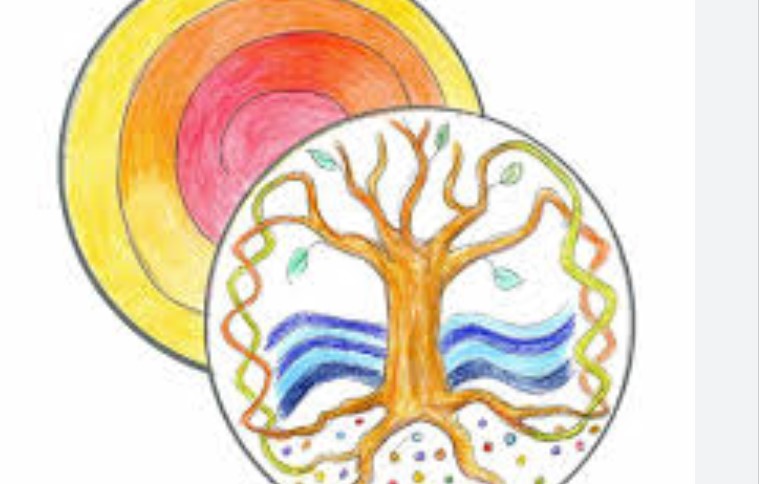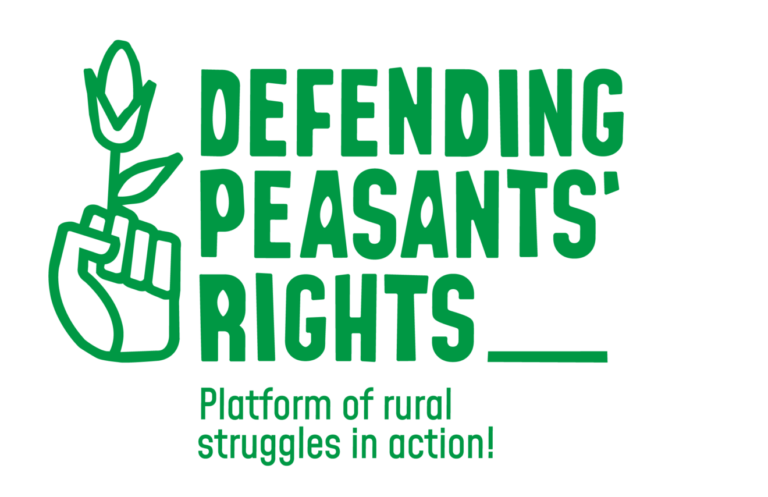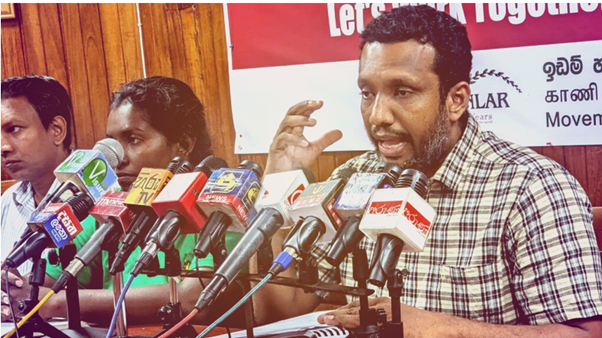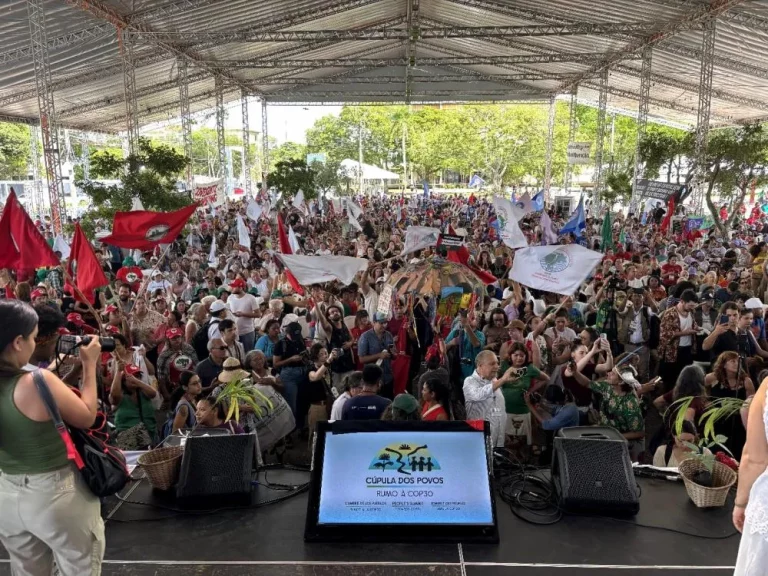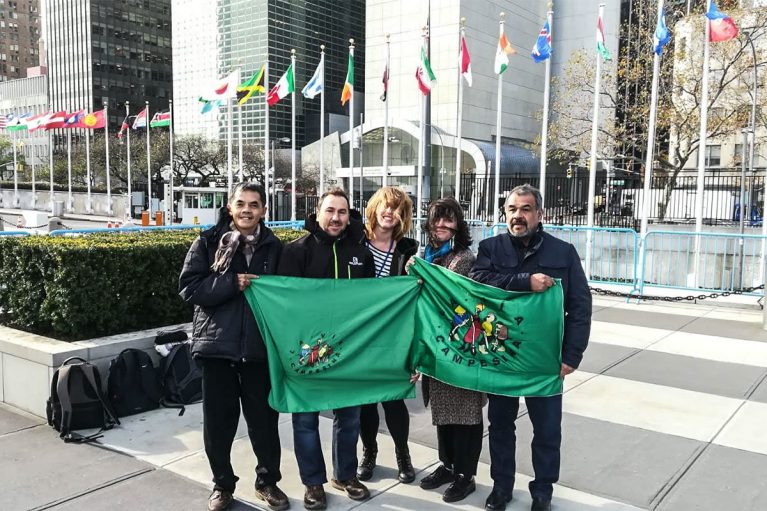Tierra Viva: UNDROP Training, Connection and Resistance in Peasant Territories of Latin America
For several years now, civil society‑led initiatives have sought to make alive and effective the rights recognised in the United Nations Declaration on the Rights of Peasants and Other People Working in Rural Areas (UNDROP). While this historic text, adopted in 2018 thanks to a sustained international mobilisation, represents an important milestone in recognising collective rights and the strategic role of rural populations, it remains still too little known in the territories concerned. Far from institutional circles, collectives and trainers are taking up with full force the tasks of transmission, appropriation and popular education.
It is in this dynamic that the Tierra Viva project was born, offering a training programme grounded in a popular, feminist, intercultural and decolonial pedagogy. Since 2022, Tierra Viva has been weaving a network for disseminating UNDROP through workshops and webinaires, working in conjunction with peasant, indigenous and human‑rights organisations, mainly in Latin America (but also in Madagascar, 2022). The approach is resolutely collective: it is about equipping struggles with legal and political knowledge, nourishing local resistance, strengthening participants’ capacities to analyse their context (from local to global), and, finally, creating bridges between diverse experiences, and favouring the transmission of rights as tools of transformation.
Training in the service of resisting territories
It all began in Mexico, in the state of Guerrero, with the organisation of five workshops in rural communities engaged in defending native maize, coffee production, as well as food sovereignty and agroecology. These communities were identified in collaboration with the FIAN Mexico section. Very quickly, the logistical difficulty of moving around in these isolated territories, combined with the precariousness of available resources, led to the development of online training as a complement. More accessible and less costly, it also allows for wider regional circulation. The virtual meetings of participants from different regions also allow for richer exchanges, promote intercultural dialogue and the opening of perspectives, and foster the weaving of connections. These webinaires or workshops therefore constitute one of the rare opportunities for training in communities, especially for women, who still too often do not have access to such spaces.
The chosen format — interactive thematic webinars, often followed by debates and exchanges about local struggles — has met with considerable success. These trainings aim not only to publicise the UNDROP, but also to link it to specific contexts, in order to encourage appropriation and action, in service of struggles on the ground.
The trainings have been extended to other regions: Yucatán, Campeche, Quintana Roo, then Peru, Ecuador, Guatemala and Nicaragua. The majority of participants are rural women, often already active in agroecology processes or in defending territories or native seeds. However, the audience has become increasingly diverse with the participation of men, students, and Latin American agroecologists in the webinars.
Each cycle consists of approximately ten modules, each addressing one of the key rights recognised under UNDROP, including the rights to land, water, peasant seeds, biodiversity, information, freedom of association and expression, and participation. In this regard the references to conventions such as CEDAW, the Convention on Biological Diversity, the Escazú Treaty, UNDRIP and ILO Convention 169 provide a broader spectrum of existing rights, all complementary and interdependent, equipping participants even further in their resistance and situating UNDROP within a broader human rights framework, aimed at a bottom‑up empowerment process. We also address cultural rights and traditional knowledge, which in 2025 has led to deepening knowledge about Andean, Maya and Amazonian ways of life and cosmovisions, thanks to the intervention of indigenous guides and leaders. These spaces for exchange aim in fact to give voice to actors in the struggles, to translate UNDROP into their daily reality, to highlight their challenges and to value their culture, their approach and their resilience.
Rights as a common language of struggles
Everywhere, the reactions are strong. Participants discover the existence of UNDROP, often for the first time. Many express a feeling of recognition and legitimisation, upon learning that there is an international legal instrument that names, values and protects their practices and identities.
The exchanges also allow difficult realities to be verbalised: youth rural exodus and migration, the loss of ancestral knowledge, dispossession, the collapse of ecosystems, gender‑based violence, repression of community leaders, corruption and the hold of drug trafficking over territories.
The Tierra Viva project insists that these rights are not reserved for peasants and people in rural zones, but concern all of society. The transformation of the food system, the mode of production and consumption, deforestation, soil regeneration, the survival of cultural heritages, the regulation of multinationals, climate justice, the conservation of the planet: these are several challenges. We all have a share of responsibility and a role to play.
What is coming: to transmit, relay, multiply
The prospects are numerous: to further broaden the trainings, to translate the materials into other local languages, to strengthen partnerships, to value feedback from experience.
One of the goals is also to have these trainings recognised, especially by local organisations, universities, peasant networks, so as to then establish collaborations. Some progress was made in this direction in 2025 since several of Tierra Viva’s partners issued certificates for participants, associating their logo with Tierra Viva. Giving visibility to the work accomplished would help to reinforce rootedness, reach new audiences, establish collaborations with more partners, networks and associations in different countries, while stimulating the participants’ motivation, and possibly obtaining more logistical support. And the site Defending Peasant Rights has a role to play in this circulation.
Tierra Viva Networks
Youtube : https://www.youtube.com/@TierraVivaMPS/videos
Email : [email protected]
Contact: +32485169934 (whatsapp)

